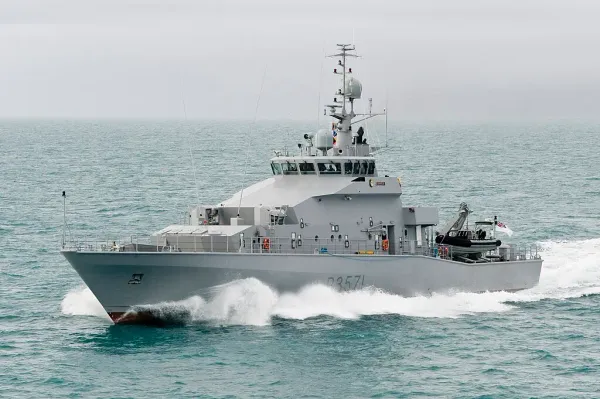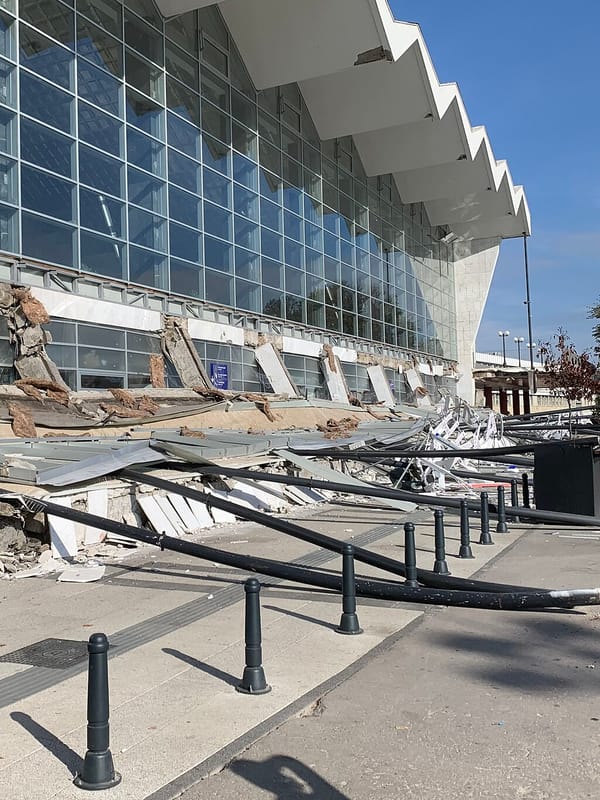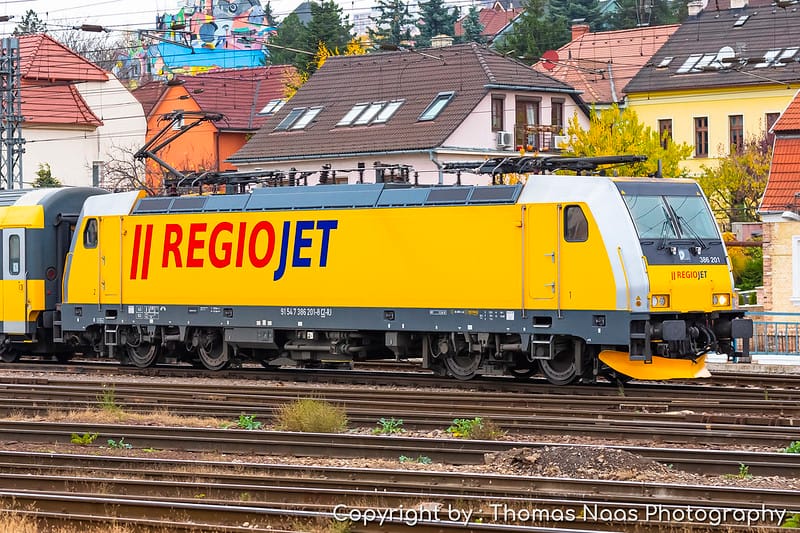
RegioJet CEE’s best rail operator - T&E report
Czechia’s RegioJet is the top-performing rail operator in Central and Eastern Europe (CEE) for cost and quality, according to the latest report of the European Federation for Transport and Environment, or Transport & Environment (T&E).
In the report T&E, an umbrella organisation for green and transport NGOs, recommends reducing VAT and rail tolls; upgrading infrastructure; expanding night train services and cycling-friendly policies and investing in digital platforms.
Known for its low fares and reliable operations, RegioJet exemplifies how private operators can compete effectively with national rail providers, and highlights the potential for competitive pricing models in CEE, the T&E adds.
Rail holds potential in EU’s fight to limit climate change
The EU-27 has one of the world’s densest rail systems, and issues include varied national networks, complex regulatory landscapes and freight inefficiencies.
In 2023 rail delivered a record 429bn passenger-kilometres over 8bn journeys in the EU, with the highest annual increases seen in Croatia, Slovenia, Luxembourg, Ireland, Spain and Italy.
However as rail travel accounts for 5.1% of EU passenger mobility but only 0.4% of its greenhouse gas emissions, it holds potential for combating climate change, and the bloc has stated its aim to create a seamless, sustainable railway network in a single framework.
Investment needed in digital, bike policy, night services, infrastructure
The NGOs umbrella organisation to promote sustainable European transport reported disparities in affordability, reliability, and environmental contributions amongst the rail operators.
Bulgaria’s BDZ and Greece’s Hellenic Trains scored poorly due to outdated infrastructure, frequent delays and service unreliability. Meanwhile, a lack of transparency over cancellations impacts passenger trust levels. Investment in modernisation and better maintenance would be critical to addressing these issues, according to the report.
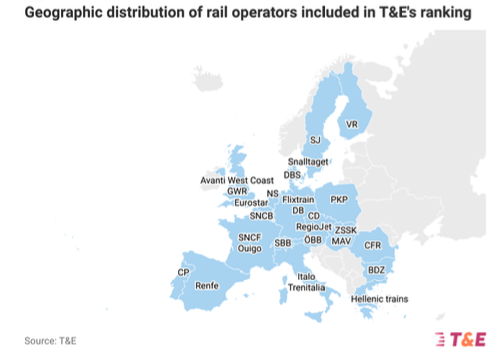
Night train revival in Romania, Slovakia
The resurgence of night trains in Romania and Slovakia signals growing interest in sustainable, long-distance travel, T&E reports. CFR (Romania) and ZSSK (Slovakia) are expanding night train services, offering low-emission alternatives to air travel.Further investment would enhance passenger comfort and connectivity.
The report highlights the impact of VAT and rail tolls on affordability, as high ticket prices remain a barrier for many in CEE passengers. Hungary and Poland have cut tolls, demonstrating that policy interventions can lower cost to the passengers, and such measures ensure more equitable access to rail services.
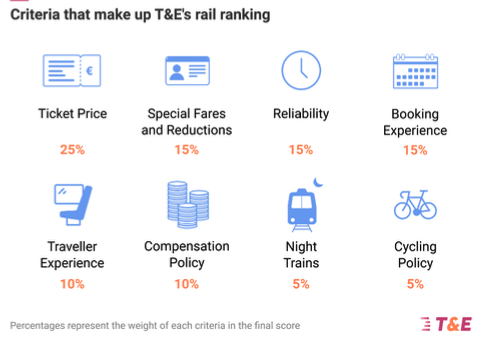
Digitalisation, accessibility in focus
Cycling-friendly policies vary widely across CEE. Slovenia’s Slovenske Zeleznice and RegioJet have bike-friendly services, but other countries are lagging. The report comments that expanding cycling infrastructure at stations and on trains would be key to promoting multi-modal transport in CEE.
Digital booking varies across CEE, with RegioJet and Poland’s PKP Intercity standing out for their user-friendly, multilingual platforms, while BDZ urgently needs to invest in digital tools to improve services in Bulgaria, according to the report.
EU backs rail in the billions
The EU has implemented four railway packages since 2001, the most recent of these in 2021 aiming to enhance interoperability, improve passenger rights and liberalise the market.
The bloc has earmarked for rail EUR 25bn from its EUR 33bn Connecting Europe Facility, positioning its railway network as a cornerstone of sustainable, inclusive, and interconnected transport.
Rail operators in CEE can contribute to sustainable mobility, to align with EU sustainability goals and meet the growing demand for reliable, affordable, and eco-friendly travel options, T&E concluded.

